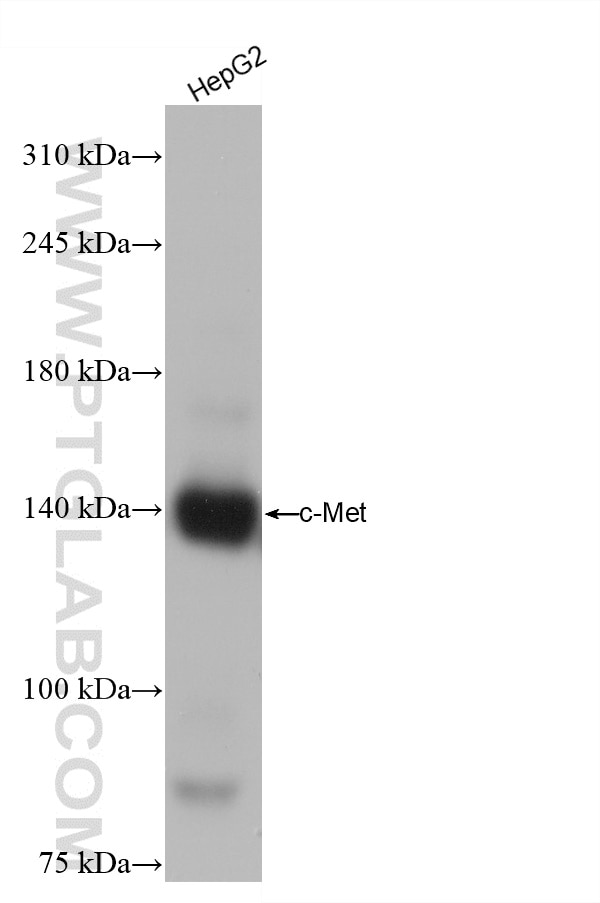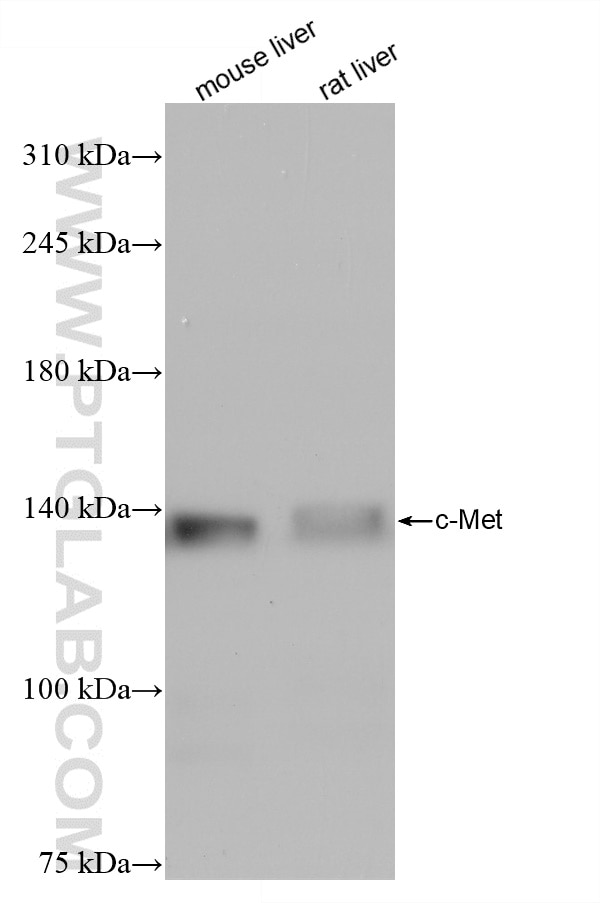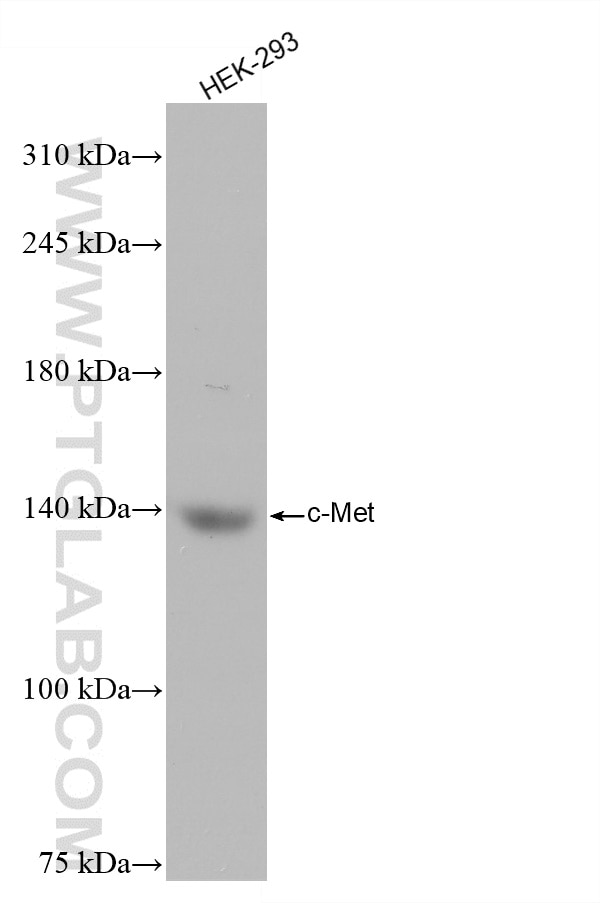c-Met (Cytoplasmic) Recombinant antibody
c-Met (Cytoplasmic) Recombinant Antibody for WB, ELISA
Host / Isotype
Rabbit / IgG
Reactivity
Human, mouse, rat
Applications
WB, ELISA
Conjugate
Unconjugated
CloneNo.
2G12
Cat no : 82904-1-RR
Synonyms
Validation Data Gallery
Tested Applications
| Positive WB detected in | HepG2 cells |
Recommended dilution
| Application | Dilution |
|---|---|
| Western Blot (WB) | WB : 1:2000-1:10000 |
| It is recommended that this reagent should be titrated in each testing system to obtain optimal results. | |
| Sample-dependent, Check data in validation data gallery. | |
Product Information
82904-1-RR targets c-Met (Cytoplasmic) in WB, ELISA applications and shows reactivity with Human, mouse, rat samples.
| Tested Reactivity | Human, mouse, rat |
| Host / Isotype | Rabbit / IgG |
| Class | Recombinant |
| Type | Antibody |
| Immunogen | c-Met (Cytoplasmic) fusion protein Ag23140 |
| Full Name | met proto-oncogene (hepatocyte growth factor receptor) |
| Calculated Molecular Weight | 1390 aa, 155 kDa |
| Observed Molecular Weight | 140 kDa |
| GenBank Accession Number | BC130420 |
| Gene Symbol | MET |
| Gene ID (NCBI) | 4233 |
| Conjugate | Unconjugated |
| Form | Liquid |
| Purification Method | Protein A purification |
| Storage Buffer | PBS with 0.02% sodium azide and 50% glycerol pH 7.3. |
| Storage Conditions | Store at -20°C. Stable for one year after shipment. Aliquoting is unnecessary for -20oC storage. 20ul sizes contain 0.1% BSA. |
Background Information
c-Met (also named MET or HGFR) is a receptor tyrosine kinase that transduces signals from the extracellular matrix into the cytoplasm by binding to the HGF ligand. c-Met regulates many physiological processes including proliferation, scattering, morphogenesis, and survival. The primary single-chain precursor protein is post-translationally cleaved to produce the alpha and beta subunits, which are disulfide-linked to form the mature receptor. Overexpression and/or mutation of c-Met has been reported in various human malignancies, including lung cancer, breast cancer, head and neck cancer, gastric cancer, colorectal cancer, bladder cancer, uterine cervix carcinoma, esophageal carcinoma, c-Met could serve as an important therapeutic target (PMID: 26036285). The c-met receptor is a 190-kD glycoprotein consisting of a 145-kD membrane-spanning beta chain and a 50-kD alpha chain (PMID: 7806559). In Western blot, this antibody produces bands of unknown identity at 55 and 100 kDa.
Protocols
| Product Specific Protocols | |
|---|---|
| WB protocol for c-Met (Cytoplasmic) antibody 82904-1-RR | Download protocol |
| Standard Protocols | |
|---|---|
| Click here to view our Standard Protocols |




